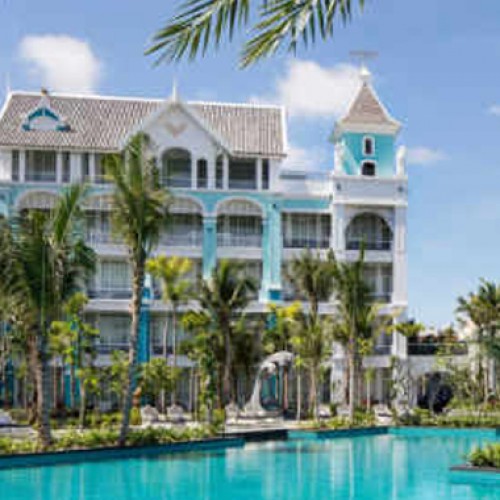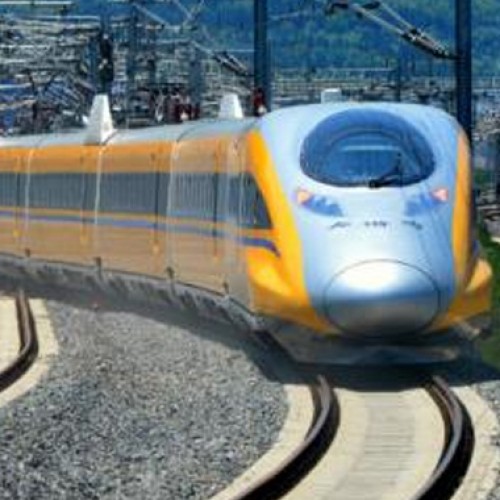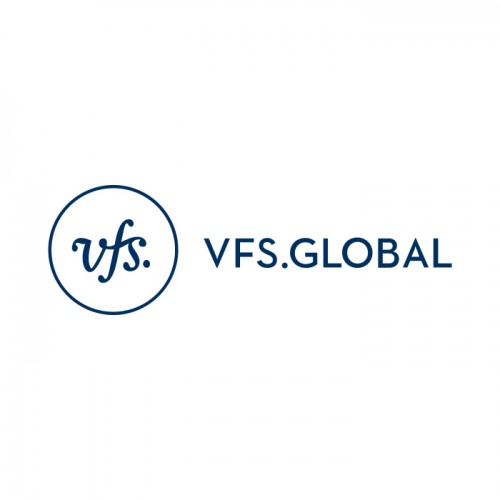Hotel industry’s revival hopes hinge on easing of restrictions, govt support
By PREM KUMAR
Yet to come to terms with low demand for rooms and uncertain future bookings, India’s hotel industry faces tough time ahead as hotels are unable to secure any future business. Partial removal of restrictions may help the revival of hotel business. Post lockdown, government support for the sector will also be crucial for its early recovery from the Corona shock. On the crisis the Hotel Industry is facing, TnH spoke to SHWETANK SINGH, Vice President – Development & Asset Management of InterGlobe Hotels.
Impact of the Crisis
The Indian hospitality sector has been heavily impacted by the Covid-19 pandemic, says Singh, especially with the countrywide lockdown and suspension of all air and railway services.
He says that the sector is still coming to terms with low room demand and uncertain future bookings as the hotels are unable to secure any future business.
According to Singh, segments such as corporate travel, leisure and MICE have been severely hit in the last few weeks.
The calendar year 2020 had a strong start with January and February bringing in usual business, says Singh, however, “the circumstances caused by Covid-19 outbreak triggered cancellations and fall in occupancies.”
Research papers by HVS and Hotelivate have estimated the losses would range anywhere between USD 1.5 Billion (early stage assessment) – USD 3.5 Billion (assessment post the lock down) for the organised sector of hotels, given the situation is controlled by July 2020.
As per Singh’s own assessment, these numbers may differ and can even go up to USD 4.5 Billion if the situation remains the same till Q3 of FY 2021. As per STR, the occupancies for the country wide hotels were earlier estimated at ‘-44%’ against last year. The same number is now reporting as low as ‘-80%’ according to the data available till March 2020. As a matter of fact, Singh says that the occupancy PAN India during the last week of March was as low as 11% which is extremely rough for the entire sector.
During this time the blended nationwide Average Daily Rates (ADR) have also seen a drop of around 14% – 20%. “There hasn’t been a drastic drop in the ADR as hotels may not be able to secure any further demand than they currently have even by lowering the hotel rates. Reduced room revenue coupled with decline in both F&B demand & MICE has cascaded to the overall revenue of hotels across India,” says Singh.
The long-term impact is particularly hard to predict, says Singh, however, partial removal of restrictions seems like the scenario which will be playing out for some time. “It will be very difficult for the industry to recover the lost ground for this year, but we anticipate a V-shaped recovery curve and we are hopeful that business sentiment will start improving by mid of Q2 of the Financial Year 2020-21. If all businesses are opened in a phased manner by the initial weeks of May or sometime around then, it will take a minimum of 3-5 months for organizations to stabilise and business to gain the volumes as the travel sentiments of people improving will take at least this much time.”
The Way Forward
The hotel companies and operators are already working towards the revival and the next steps that will be taken to get back on track once the threat is contained, says Singh. “We first expect the work-related travel to rebound as most companies would want to take stock of the situation and move towards business as usual. Next would be domestic leisure travel as people would be cautious while travelling abroad. Social functions should also pick up as several events have already been cancelled and we could see a rise in these numbers.”
In this regard, Singh says, MICE is likely to remain slow for the rest of the year as most companies might clamp down on costs for the year. In terms of hotels in the economy/midmarket space, this category should pick up first as companies will remain cost conscious.
“Having said this, we should not expect an immediate spike in travel and tourism but once the business movement begins again after the lockdown is lifted, the travel sentiments will eventually progress thereby improving the domestic travel numbers,” says Singh. “With people being averse in traveling to foreign locations, there is an opportunity for domestic travel and tourism. Places like Kerala, Goa, Rajasthan, MP, North East and other hill stations are some of the areas which we are optimistic about.”
Although such dire situations come with a silver lining, We see this adversary as an opportunity to take out all business inefficiencies that may have crept in over the years. During this time our leadership is working with their teams in trying to capture the learning’s from this slowdown and map them into opportunities through newer ways of working.
Expectations from Govt
Singh says that these are challenging times for everyone including the government and that a countrywide lockdown was an unprecedented but essential step. “The government is taking various measures including fiscal stimulus packages of 1.70 lacs crore package for poor people and working on helping industries in a phased manner. However, all the proactive steps by RBI & Government will go in vain unless the benefits are passed by the banks to consumers like – moratorium and lower interest rate. The government can also support the industry in project financing, waiver / deferment on various licence fees such as Property Tax, Insurance Costs and deferment of Statutory Compliances to name a few.”
GST Waiver
Singh also favours a GST Waiver. “A complete GST Tax holiday for the Tourism & Hospitality Industry for next 12 months as this would lower the overall cost for the customer making it more attractive. The industry would also like a GST waiver on civil structure for hotels under construction for next 24 months as currently there is no input credit is available for civil structure which leads to an overall increase of cost of construction c.8-10%. At the same time the government could fast track all GST refunds for the Industry which will improve cash flow which is currently strained.
Waiving Permits, Interests Payments
Singh calls for waiving of fees for all upcoming operational licenses/permits for the next 12 months across all states for excise license for liquor, property taxes and Interests.
Insurance Cost – Huge cost for Industry. The Govt. can advise IRDA to allow companies to pay Insurance premium monthly / quarterly basis instead of yearly advance
Financial supports like MGNREGA – Usage of the MNREGA funds to support salaries of employees in the Tourism Industry which will help reduce costs until revenue improves.
Dealing with the Crisis
During this slowdown, the occupancies have been low so we have aimed to cope with this by working on operational efficiency and streamlining costs, says Singh, adding: We have asked all operations team to look at ways of controlling the BOH service expenses and bring down operating costs. In fact, we have closed certain floors and wings in the hotels which are not being used due to low room demand and all guests have been placed on 2-3 floors on every hotel. We have also put a hold on all major refurbishments and renovations works. We have even closed our buffet services and are providing in-room dining.
You might also like
JW Marriott Phu Quoc Emerald Bay Resort & Spa set to open in Thailand
The flagship of JW Marriott Hotels & Resorts in Vietnam, JW Marriott Phu Quoc Emerald Bay Resort & Spa will open its doors to public later this month, making it
China to relaunch the world’s fastest bullet trains
China is relaunching the world’s fastest bullet trains, running at 350 kilometers (217 miles) per hour. The trains will service the route from Beijing to Shanghai starting next month, making
VFS Global appointed to offer new Indonesia e-Visa on Arrival service to Indians, 96 other nationalities
New Indonesia Electronic Visa on Arrival (e-VoA) service to commence in the first half of December 2024. Dedicated email and live support to be available in seven languages – English,








